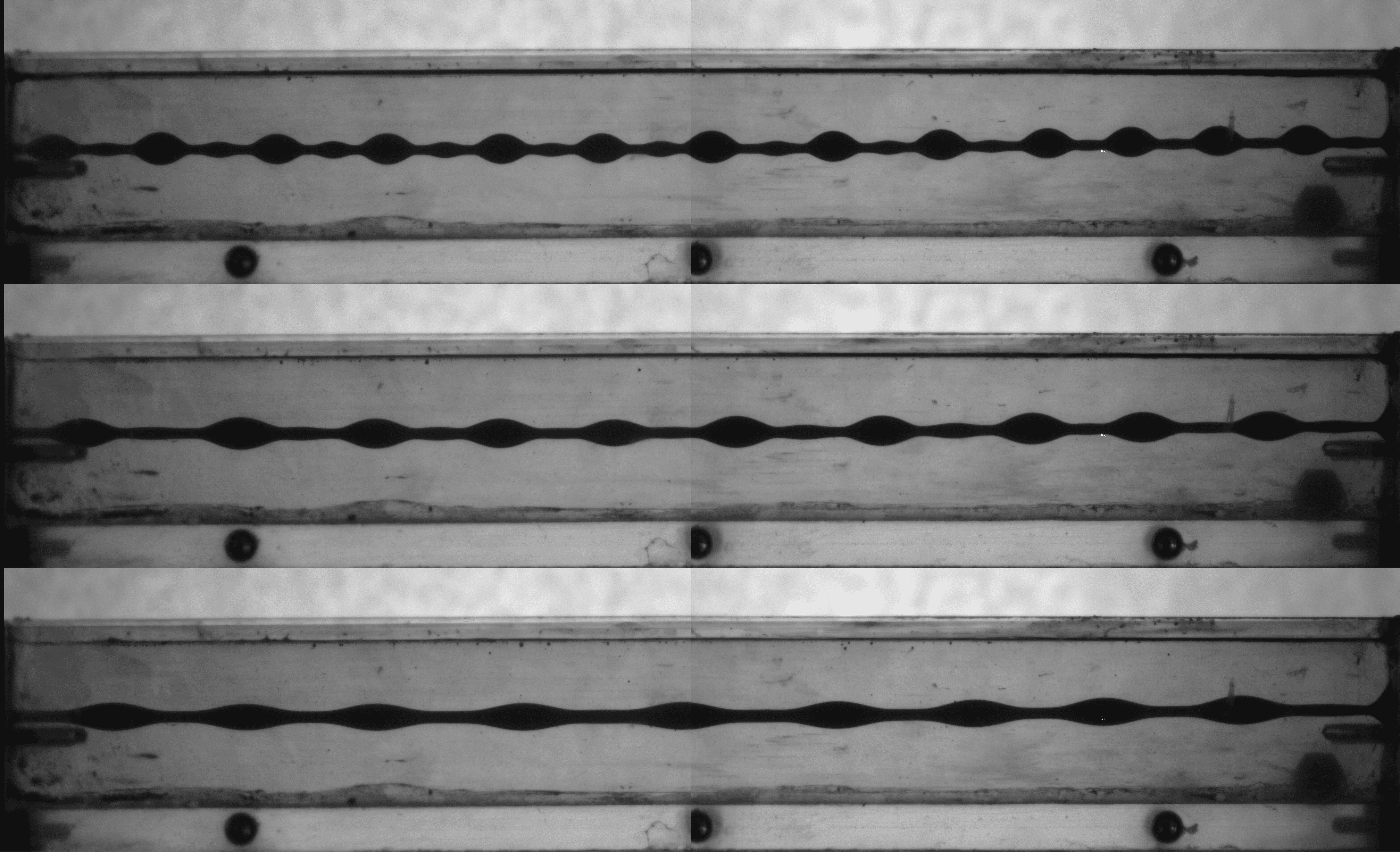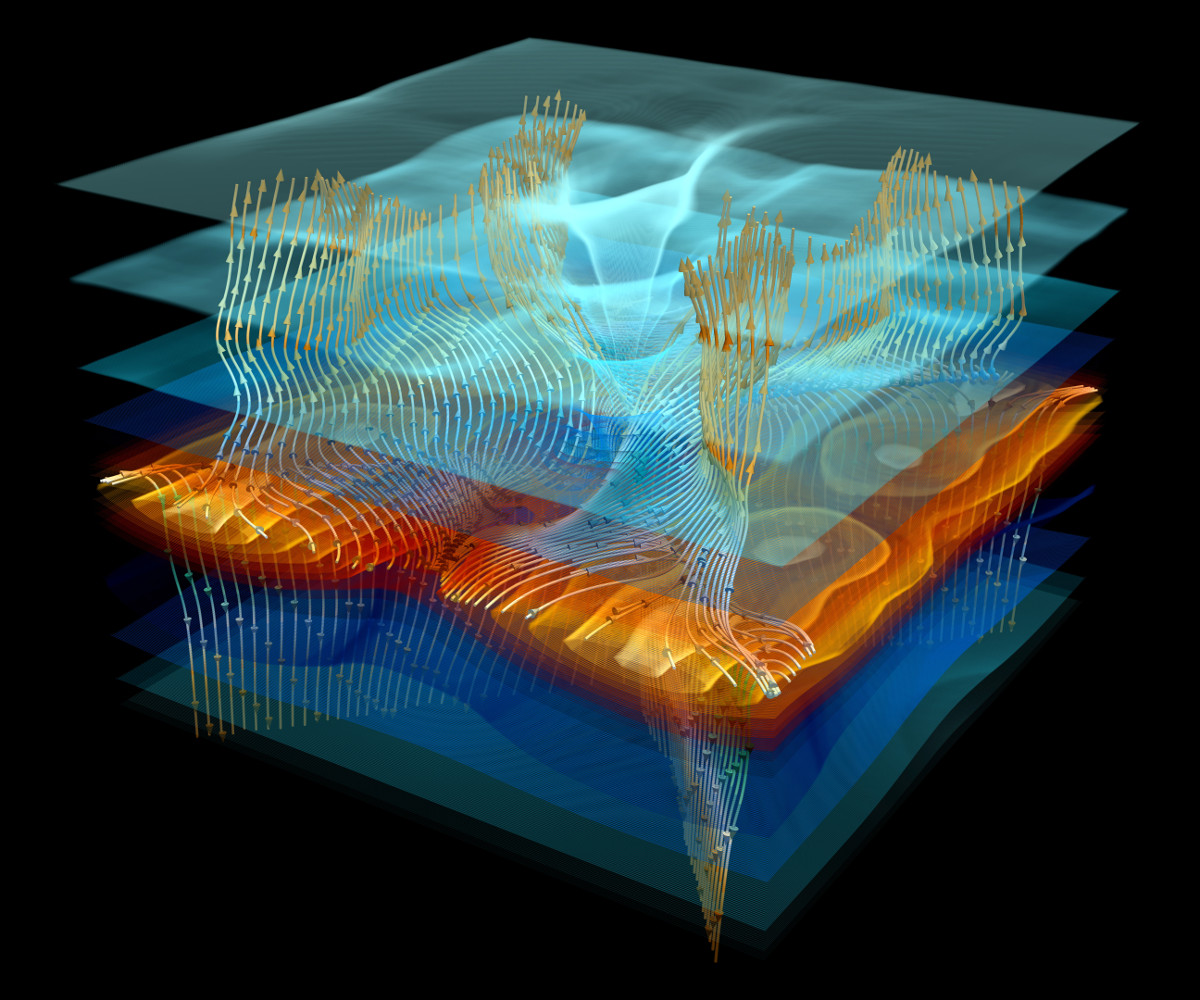Missions of the department :
- Characterize, predict and control complex flows (turbulent, compressible, heterogeneous, multiphase, with phase-change) and other dynamical systems (e.g. biomedical applications)
- Develop theoretical, experimental, numerical and modelization tools.
- Address new societal issues (renewable marine energy, coastal flows, phase-change material, tumor dynamics)
- Strenghten the research training (University, INSA, doctoral programs)
Current researches in the TASC department cover:
- ‘Real’ turbulent flows :
- at finite Reynolds number, variable viscosity/density,
- for very and very high temperature,
- in presence of interfaces, coherent structures, droplets or particles,
- with or without chimical reactions.
- Interaction of compressible flows with solid boundaries :
- with jet detachment in supersonic nozzles, & low frequency oscillations.
- for adiabatic and isothermal supersonic boundary layers
- Liquid/gas flows:
- supercritical, visco-elastic, ferro-magnetic
- with phase-change,
- in presence of acoustic or magnetic fields,
- large-scales
- Dynamical systems:
- with coupled dynamics (networks)
- requiring a theory to estimate their observability
- in connection with biomedical applications (tumoral development)
22
Professors-Researchers
4
Researchers
18
PhD students
3
Post-doctorates
46
Articles published in 2019
Highlights:
- Big Blue Week: 336 million CPU hours on the Jülich supercomputer
- Young researcher award (Zebiri Boubakr) 32nd international shock wave conference, July 2019, Singapour.
- Young CFD Investigator award (Anirudh Asuri Mukundan) 10th international CFD conference, ICCFD10, Barcelone, Spain, 2018.
- ITN Marie Curie HAoS project, coordinated by the City University of London with substantial participation of the CORIA (3 ESR over 14)
- European H2020 clear sky project: CHAIRLIFT
- 5 month invited researcher (J.-C. Brändle de Motta), Pr. Lian-Ping Wang, China
- Creation of the Foam-U association. 1 conference per year since 2016 (Rouen, Nevers, Valenciennes et Lyon in 2020)
- Validation of a monitoring protocol for lung cancer patients based on weekly self-assessement symptoms.












